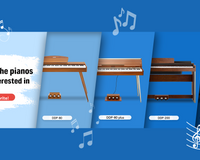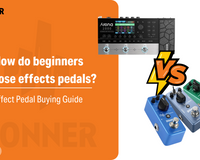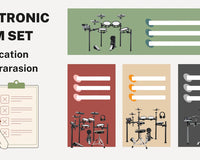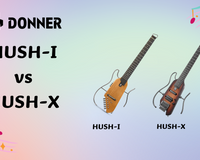Are you a budding musician eager to tickle the ivories on a digital piano? Congratulations on embarking on this exciting musical journey! Learning to play the digital piano can be both rewarding and fulfilling. However, like any skill, it requires dedication, practice, and some valuable tips to get you started on the right note. In this article, we will explore essential tips for beginner digital piano players that will help you become a proficient pianist.
Choosing the Right Digital Piano
1. Budget Considerations
When beginning your digital piano journey, it's crucial to set a budget. Decide how much you're willing to invest in your instrument. Digital pianos come in various price ranges, so having a budget will help narrow down your options.
2. Weighted Keys
Opt for a digital piano with weighted keys. Weighted keys mimic the feel of an acoustic piano, providing a more authentic playing experience.
3. Polyphony
Ensure your digital piano has sufficient polyphony. Polyphony refers to the number of notes a piano can produce simultaneously. A higher polyphony count allows for more complex and rich musical compositions.
Setting Up Your Digital Piano
1. Proper Positioning
Place your digital piano in a comfortable and well-lit area. Ensure that your chair and piano bench are at the right height to maintain proper posture while playing.
2. Connectivity
Check the connectivity options of your digital piano. Some models offer USB or MIDI connections, allowing you to connect to a computer for recording and learning purposes.
Learning and Practice
1. Begin with the Basics
Start by learning the fundamentals of music theory, including notes, scales, and chords. This foundation will serve you well as you progress.
2. Online Resources
Take advantage of online tutorials, lessons, and apps designed for beginner pianists. These resources provide structured lessons and interactive exercises. Donner also provides corresponding content, click here.
3. Daily Practice
Consistent practice is key to improvement. Dedicate a specific time each day to practice your digital piano, even if it's just for a short duration.
Technique and Playing
1. Hand Position
Pay attention to your hand positioning. Ensure that your fingers are curved, and your wrists are relaxed to avoid strain and injuries.
2. Finger Exercises
Incorporate finger exercises into your practice routine to strengthen your finger muscles and improve dexterity.
3. Play Along with Songs
Choose your favorite songs and try to play along with them. This will help you develop your ear and musical intuition.
Recording and Self-Evaluation
1. Record Your Playing
Use the recording feature on your digital piano to capture your performances. Listening to your recordings will help you identify areas that need improvement.
2. Set Goals
Establish achievable goals for your piano playing. Whether it's mastering a particular song or hitting a certain tempo, goals provide motivation.
Seek Guidance
1. Consider Lessons
If you're serious about progressing as a pianist, consider taking lessons from a qualified instructor. They can provide personalized guidance and feedback.
2. Join a Community
Joining a local or online piano community can be immensely helpful. You can exchange tips, experiences, and even collaborate with other musicians.
Conclusion
Learning to play the digital piano is an exciting endeavor. Remember that progress takes time, so be patient with yourself. Keep these tips in mind, practice consistently, and soon you'll be playing beautiful melodies with confidence.
FAQs
1.How long does it take to become proficient on the digital piano? Becoming proficient varies from person to person, but with consistent practice and dedication, you can make significant progress within a few months.
2.Do I need to learn to read sheet music to play the digital piano? While it's beneficial, it's not mandatory. Many beginner pianists start by learning to play by ear or using chord charts.
3.Is it necessary to buy an expensive digital piano to start learning? No, there are affordable digital pianos with good quality and features suitable for beginners.
4.Can I self-teach digital piano, or do I need an instructor? You can self-teach using online resources, but having an instructor can provide valuable feedback and guidance for faster improvement.
 Skip to content
Skip to content





















